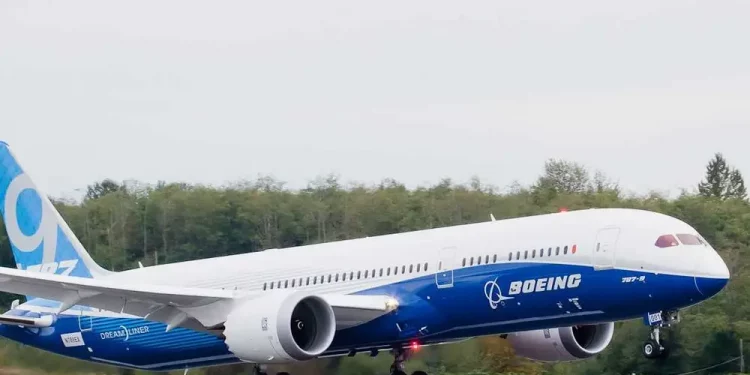Boeing Co. is offering 737 Max jets, once slated for Chinese customers, to Air India Ltd. as the planemaker tries to offload some of the roughly 140 aircraft it’s currently not allowed to deliver.
The Indian carrier, which is overhauling its fleet under new owner Tata Group, is one of a number of potential customers for Boeing, which is in talks with lessors and other airlines.
The US manufacturer hasn’t been allowed to deliver Max aircraft to China for more than three years as it grapples with escalating trade tensions and repercussions from two fatal crashes of the workhorse jet. China was the first to ground the Max in March 2019 and held off approving its return long after US regulators lifted a ban in late 2020.
Dave Calhoun, the company’s chief executive officer, told reporters in September that Boeing “can’t wait forever” and was putting a small number of jets back on the market. The planemaker has about $5 billion in cash tied up in the already-built jets earmarked for China, according to George Ferguson, analyst with Bloomberg Intelligence.
Air India has sought to order as many as 300 narrowbody aircraft to revamp its fleet following the takeover by Tata, India’s largest conglomerate, Bloomberg News reported in June.
“Even if the Max jetliners rolled out of Boeing’s factory in 2018 or 2019, they will be considered brand new by most appraisers when they’re finally delivered. Until that milestone occurs, the planes are technically considered to be still in Boeing’s production system”, said George Dimitroff, head of valuations for aviation research firm Cirium.
Ultimately, Chinese airlines will probably take the majority of the 737s they’ve ordered from Boeing, Dimitroff said.
“They might not necessarily take all of the aircraft that are currently already built and are waiting for them. They may let go of some of those already built for Boeing to re-market, while they take new-production aircraft at a later date, or a mix of the two.” added George Dimitroff.
Read also; China Airlines to Buy 16 Boeing 787s for $4.6 Billion.




